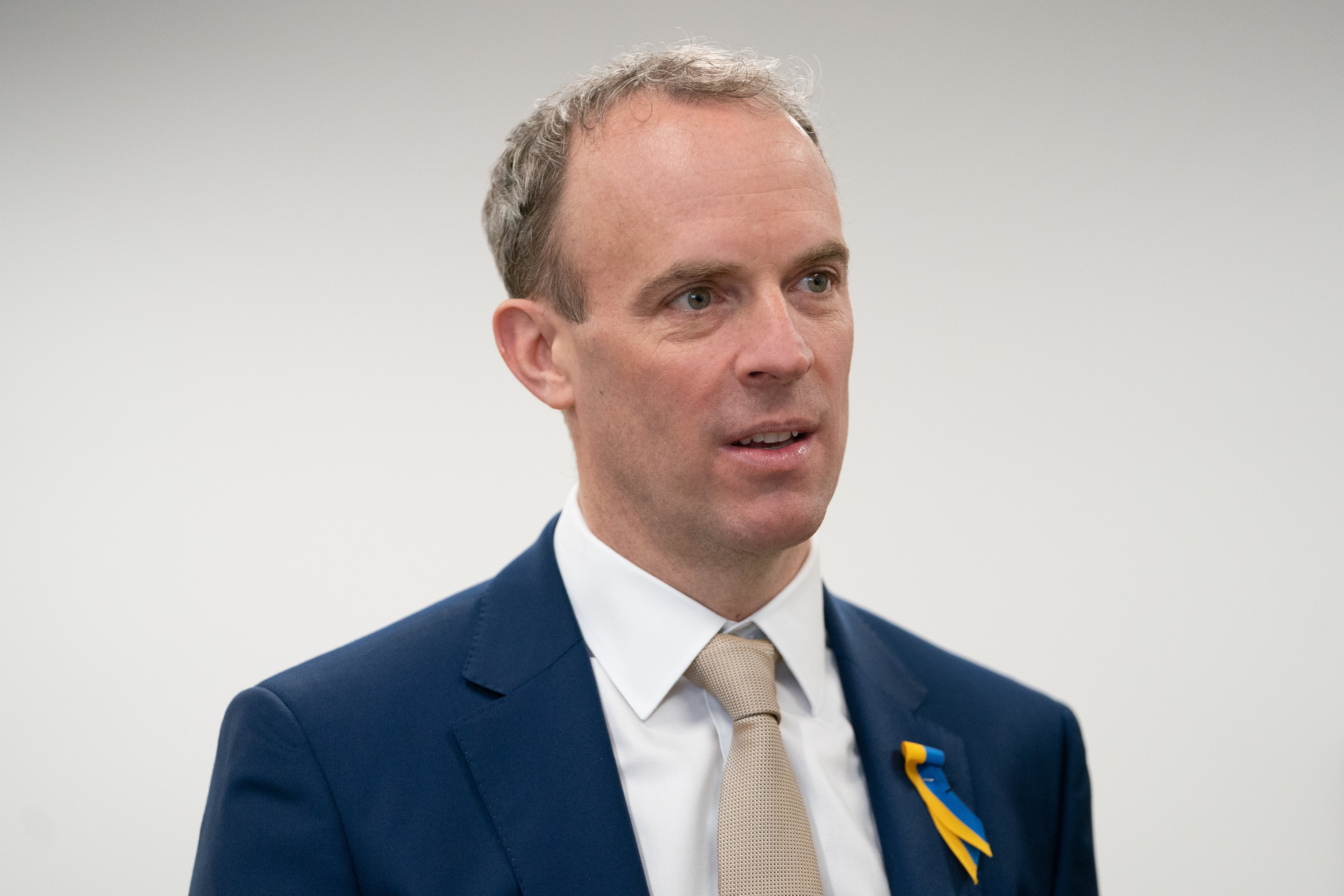Dominic Raab vows shake-up of ‘bonkers’ human rights legislation
The Justice Secretary said his proposed changes would make it easier to deport foreign criminals.

Your support helps us to tell the story
From reproductive rights to climate change to Big Tech, The Independent is on the ground when the story is developing. Whether it's investigating the financials of Elon Musk's pro-Trump PAC or producing our latest documentary, 'The A Word', which shines a light on the American women fighting for reproductive rights, we know how important it is to parse out the facts from the messaging.
At such a critical moment in US history, we need reporters on the ground. Your donation allows us to keep sending journalists to speak to both sides of the story.
The Independent is trusted by Americans across the entire political spectrum. And unlike many other quality news outlets, we choose not to lock Americans out of our reporting and analysis with paywalls. We believe quality journalism should be available to everyone, paid for by those who can afford it.
Your support makes all the difference.Dominic Raab promised “commonsense” measures to make it easier to deport foreign offenders as part of a shake-up of human rights laws.
The Justice Secretary accused some lawyers of taking advantage of the Human Rights Act and said there had been “elastic interpretations” of the law in the courts which had prevented criminals being sent back to their home countries.
Reforming the Human Rights Act was promised in the 2019 Tory manifesto and the measures are likely to feature in the Queen’s Speech.
Mr Raab has promised MPs that there would be legislation in the new session of Parliament which starts with the State Opening on Tuesday.
I'm proud that we've got a judiciary that's the envy of the world over. But equally, there will always be those that will take advantage
The Justice Secretary, who as Lord Chancellor has a responsibility to defend the judiciary, declined to repeat Boris Johnson’s attack on “liberal lawyers” who seek to scupper plans such as the scheme to send asylum seekers to Rwanda.
But he told LBC Radio that some lawyers did seek to take advantage of the existing human rights framework.
“I’m proud that we’ve got a world leading, world beating, legal services profession.
“I’m proud that we’ve got a judiciary that’s the envy of the world over,” he said.
“But equally, there will always be those that will take advantage.
“But the truth is, the job is on us, the responsibility is on us, and we take that very seriously, to correct the systemic problems.
“Which is why we’re going to replace the Human Rights Act with a Bill of Rights so we’ve got less shifting of the goalposts, less elastic interpretations of human rights, which I think the public finds frustrating in the context of deporting foreign national offenders.”
The Human Rights Act put the European Convention on Human Rights into domestic law, but it has been criticised by successive Tory administrations over the way it has been interpreted.
Mr Raab highlighted proposals to change the interpretation of the article eight right to family life, which he said had allowed some criminals to claim their ties to the UK mean they cannot be sent abroad.
“What you would do is you’d make it clear in the context of deporting foreign criminals, and bear in mind, if you look at paragraph two of article eight of the European Convention, it does allow qualification and reservations and conditions to be applied in its very nature,” he said.
“I think we should set those out very clearly so that the public interest in removing serious criminals trumps these elastic interpretations that a foreign national offender will use to try and stay, come hell or high water, in this country.”
In a Sun On Sunday interview, Mr Raab said the current situation was “bonkers”.
“It’s a question of public confidence,” he said.
“The Human Rights Act was supposed to protect our rights yet we’ve seen cherished freedoms, like free speech, eroded while inflating rights in other areas.
“It’s bonkers.”